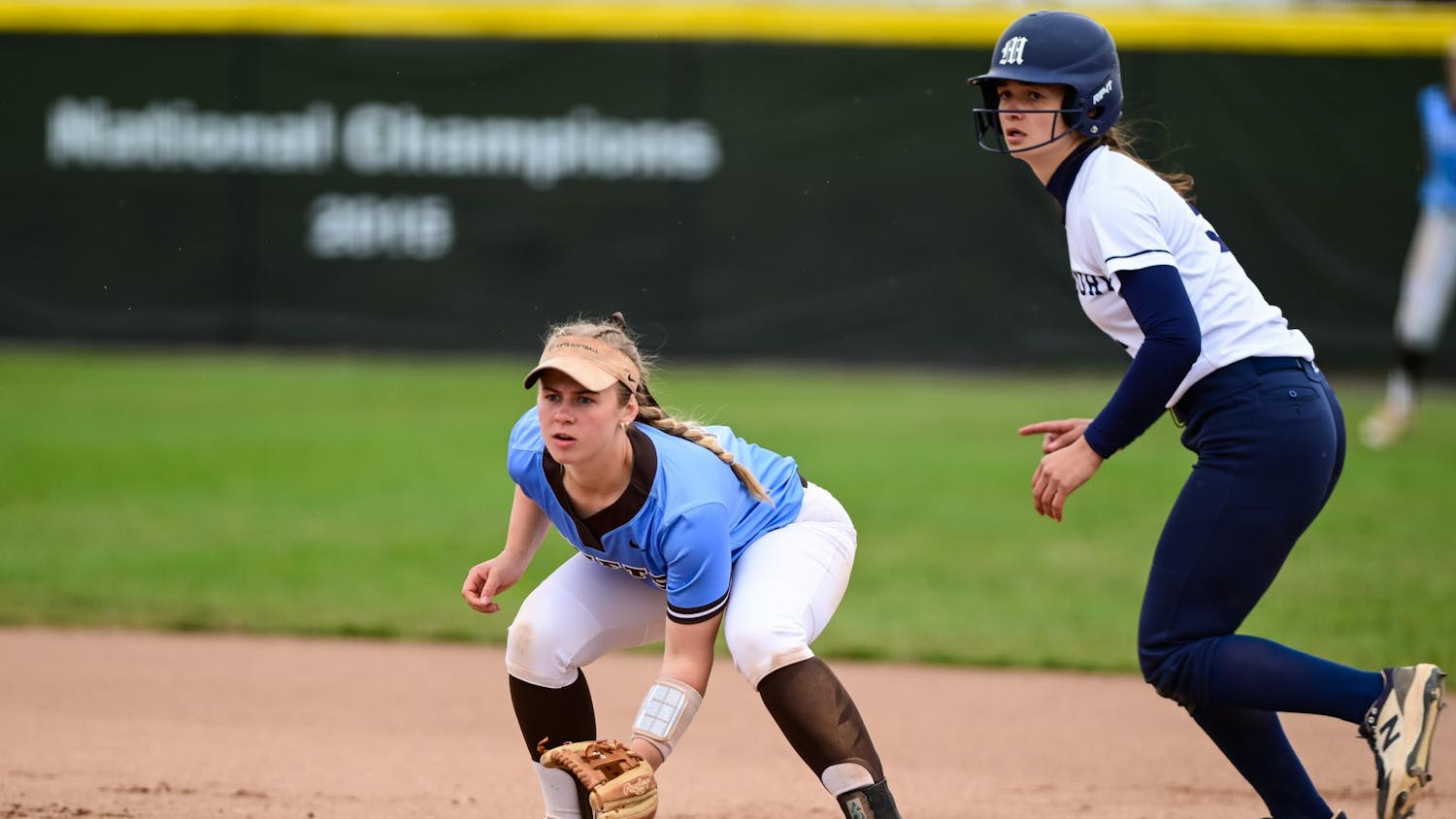The Tufts Student Athletic Advisory Committee (SAAC) hosted a talk on Nov. 5 led by former Washington Wizards interim head coach and long-time NBA executive Ed Tapscott (LA '75). The talk, which was moderated by sophomore women's soccer player Allie Weiller, is one of the first steps that SAAC has taken in advancing its organizational goals.
Originally, a few years ago, when [SAAC] was really starting to pick up, [the goal] was simply to bring fans to sporting events, which Tufts kind of had an issue doing," Weiller said. "I think now, with Fan The Fire, that is not an issue anymore, and it's more of a routine. I think the next biggest thing we're working on is bringing athletes and non-athletes together."
According to Weiller, talks led by individuals like Tapscott will be vital because they appeal to a wide range of students and can serve to bridge the gap between athletes and non-athletes.
"Since we are branching out past Fan the Fire this year, I thought the best way of doing that was bringing in someone that could talk to the Tufts community about how their experiences helped them get to such a vibrant and amazing career that they have today," Weiller said.
For Weiller and SAAC, Tapscott was an obvious choice.
Life at Tufts
Tapscott, who graduated from Tufts with a degree in political science and a job coaching the Tufts freshman basketball team, believes his time at Tufts was extremely influential to his life - one of the reasons he agreed to speak at the university last week.
"I really believe that my athletic experience, as well as my academic experience [at Tufts], has really shaped who I became," Tapscott said. "I think that my experience here was certainly part of what helped launch me to things I ended up wanting to do and was able to do."
One of the values Tapscott took out of his time at Tufts - and stressed during his talk - was leading a balanced lifestyle.
"I work in an athletic environment, and I see guys who have certainly emphasized their athletic development throughout their lives," he said. "As a result of that ... they have turned that into lucrative professional careers. However, the one thing they can't stop is aging, and at some point, the muscles that you use in your body will stiffen and slow, but the one muscle you can continue to develop is the brain. I left [Tufts] with a fairly good appreciation of how to use both."
Tapscott, however, was not all brains and no brawn. During his Tufts athletic career, he was a captain of the basketball team for his junior and senior seasons and ended up eighth all time on the career assists list for the school.
Tapscott used the unique atmosphere that Tufts provided to propel himself through life, and eventually, into a job in the NBA.
From athlete to coach, and everything in between
Despite his impressive post-graduate professional resume in athletics, Tapscott originally came to Tufts with the intention of becoming a lawyer. He went on to graduate from American University with a Juris Doctorate in 1980 and only began to get truly involved in athletics when he was promoted to head coach of American's men's basketball team in 1982.
Tapscott finally left Washington, D.C. after eight successful seasons, leaving behind a legacy as the coach with the second highest winning percentage in school history. However, Tapscott, who preached the value of competitiveness during his talk, did not end his professional climb at American.
"I really tried to diversify my portfolio," he said. "I didn't want to be stuck doing one thing. When I left college coaching, before I even went into the NBA, I was an attorney agent. All of a sudden, I was out of coaching and in the business contract side of it. Then when I joined the Knicks, I was in the administrative side of things."
Tapscott continued to build his resume, working in television and then for several pro teams in different capacities, before he got his big break with the Charlotte Bobcats.
"I never seemed to specialize in any one thing," he said. "I was a jack of all trades, and that seemed to serve me extremely well."
Tapscott was rewarded for his hard work when he was the first employee hired to run the Charlotte Bobcats as the executive vice president and chief operating officer. After he left the Bobcats, he joined the Wizards in an administrative role and was named the team's interim head coach in 2008.
Tapscott explained that although he had experience coaching in college, the transition to the NBA required a different type of thinking.
"Coaching in college is an exercise in authority, and coaching in the NBA is an exercise in creativity," he said. "You have to create things that focus interest and attention, and do so in a manner that [the players] will embrace. It makes it interestingly challenging."
Tapscott, who returned to the front office of the Wizards after the year, believes that his roles as both coach and administrator naturally play off of each other.
"Coaching and administration [have] so many parallels," he said. "It's about managing egos





